Episode 7
Anthony “Harry” Moffitt
Harry completed his time with the SAS as its Human Performance Manager. He’s a Registered Psychologist and runs a human performance consultancy, Stotan Group, working with sports teams, the military and industry.
He remains a cricket tragic.
Support the show (https://www.paypal.com/donate/?cmd=_s-xclick&hosted_button_id=YFPA96HE5Q22A)
Speaker 1: I'm Steve price. I'm proud to be an Australian ambassador for wounded heroes, the first responders to our homeless and at-risk veterans providing emergency solutions right across Australia. They're starting to sell furniture and they're starting to sell engagement rings. They're Hawking their metals. They're Hocking their PlayStations for their kids to keep a roof over their head. Every day, year round wounded heroes provides these emergency solutions with no government funding. We just noticed there was a need for that immediacy of crisis funds. The immediacy of being able to operate within one hour, 10 minutes, 15 minutes to do get food on the table, electricity to get some rent pays. They're not being evicted. And they saved my life mate, and they work tirelessly seven days a week without any help. No they're running on the smell of an oily rag and they, they get there on time heroes. Welcome to our latest video
Speaker 2: The day for the wounded heroes, not for profit, which of course helps return vets get their lives back on track. Now look, we've spoken to some remarkable women and men. Who've served Australia here and in war zones off shore. And without exception, in my view, they are all outstanding individuals. Many have struggled. Post-service others have prospered and all have fascinating stories to tell. But I think our, our podcast guest on wounded heroes veteran of the day to day as one of the most fascinating insights into serving at the sharpest of sharpens, Anthony Harry Moffett spend an incredible 20 years in the SAS. Just think about that for one moment, 20 years. So if the needs Timor in Iraq and in Afghanistan, he's turned himself into what I think is a very clever author. And he's written a book about his service, a book that I found very hard to put down and he delivered that book by hand himself to the project at channel 10. Harry is his nickname. He's got a lifelong passion for cricket. His book is called 11 bats titled after the cricket bats that were almost as important as his weapons went on deployment overseas. Harry, welcome to the wounded heroes podcast. Why, uh, why cricket?
Speaker 3: Uh, I think you just, uh, as an Australian kind of suburban kid, you, you just grow up in an inside cricket in a way when I was growing up, back in the, uh, the, the seventies cricket was being played everywhere on the streets in the backyards, uh, truck stops on the side of the road. So, uh, yeah, you just kind of grew into it. Uh, I think the old saying is a fish doesn't know it grows up in water. Um, so it's kind of a bit like that. I think crickets everywhere.
Speaker 2: You'll correct me if I'm not right here. I pretty much sure. I can remember seeing pictures of Australian soldiers taking on the Kiwis at cricket near the pyramids before going to Gullapalli. Am I right?
Speaker 3: Yeah. There's some fantastic iconic shots. Uh, that one, um, there's many in, in the, um, in front of the pyramids, you might remember to be caught her Australia's arguably strides, brightest POS Bala, uh, that 30 tests. I think he played, he was killed at the, a shape. It is a classic shot of Hayden slogging. One over cow in front of the sinks. Are these images of, um, cricket being played at the withdrawal of a shell grain, um, in the streets of Tobruk? Uh, yeah, it's, it's an iconic image. Soldiers playing cricket. I think
Speaker 2: She's, I had the privilege one day of, uh, uh, of interviewing Miller Keith Miller. Um, now if you want a boy's own hero, there you go. Played AFL cricket, a fantastic Australian test cricketer, uh, and a fighter pilot.
Speaker 3: Absolutely. What did they say? Uh, he's having a mission shoot up your, 200 kilometers an hour or something.
Speaker 2: I was a young kid, no into interviewing at a hotel in Adelaide where he was staying the gateway in. I think it was called, it was early morning, about 10 o'clock and he offered me a scotch.
Speaker 3: He was a good writer too. Actually I think the, uh, you had a bit of credit for it, but he did get a bit of writing, done a lot for veterans postal service too.
Speaker 2: Harry, how did you, uh, come to be in the SAS?
Speaker 3: Uh, it was a image in 1980. You might remember the princess guides, Iranian embassy hostage rescue 22 SIS, the British SAS burst on the front pages and the televisions globally. And I think it was probably, I have to say it was the first time special operations or special forces kind of time into the, the, the public purview. And I think that image is welded still to this day on my Brian and I, uh, I was hoping to be running out of full forward for Hawthorne in my future at the age of 12. But, um, that, that image really set me on a path of exploration, learning about special operations and special forces. And I was pretty much sealed from then. And I met a, not a guy named by the name of Martin start out and he really cemented it for me and gave me the confidence that I should have a crack, uh, when I was about 16 or 17. And then, you know, that it was kind of sealed from there. I was, I was on a mission took,
Speaker 2: It's funny you raise that to that, that operation in London when you mentioned it. I hadn't thought of it for years, but I can still recall the old, black and white pictures of them repelling down the front of the building. And were they not throwing explosive devices through the windows to rescue people? Is that the one I'm thinking?
Speaker 3: Yeah, that's the one. And you might remember a, there's a small group, I think two or three guys jumping from balcony to balcony to make entry, I think on the third floor, second floor. And that image is just stuck with me. I did not have a clue what they were doing or who they were at the time. I just thought whatever they're doing, that's unbelievable. So, uh,
Speaker 2: Obviously a very physical occupation and it's not easy to get into the SAS. What was the passage to get there?
Speaker 3: Uh, I, for me, it was, uh, I completed three, four years service, regular military service. And then, um, it's pretty simple. You apply, uh, they do a road show every year. You put your name down, if you're interested in, I follow you up. Uh, and then you go through a number of gateways. You have paper screenings and, you know, like physical screening to kind of, uh, I suppose, uh, you know, get you to fill out a screening process. And then if you're lucky enough to get through that, you go onto the Carter course, a selection course of a few weeks in Perth. And I look at, I just trained really hard during that period leading up to it for two or three years, put on a bit of weight and became stronger. I still growing and young, young at the time. Uh, and I had some good mentors, but, um, yeah, you just do your best and not cross your fingers, but you, uh, you hope that, uh, injury and whatnot, um, stays away and, uh, and you can give it your best shot. And as I said, very lucky to be selected,
Speaker 3: Very, uh, and you know, I, I often say to people, including myself, you try and, and try and put on weight. You know, you think in your mind, five or 10 kilos, but really it's irrelevant after the first five or 10 days, it helps you through that really rigorous physical. Um, back in those days, very harsh punishments, pushups, chin-ups carrying heavy things along the way, but after about a week, the cognitive test really starts at mental, uh, resilience, uh, kicks in and the physical, I used to have a saying that I'm the body will do as it's told, uh, in the end because you, uh, your it's the mind that kind of get you through these things and, um, as the body's breaking down and send. So I think there's a, there's an additional level beyond the physical that I think is the real difference. If I could sum it up like that, Uh, look the sleep deprivations on a whole other level, uh, anyone who's possibly undergone sleep deprivation for a few days and then have to do physical activities. I, you start to hallucinate, um, get a will types, unquote, an abstract surreal kind of, uh, uh, backdrop to everything that's going, going on. Um, food deprivation is not too bad. I think you can get through the hunger, but, um, that leads to water being thirsty based. Very difficult. Thinking back on it. Now I'm very happy here at home with plenty of sleep and food.
Speaker 2: Yes. I spent a ridiculous 43 days in a reality TV show, and I know exactly what food,
Speaker 3: No, not at all.
Speaker 2: How much fun you went to his team or, um, EV I've spoken to a number of veterans who've served in East. And I get the impression that the Australian public don't quite understand how dangerous that operation was.
Speaker 3: Yeah. In many ways, uh, my trips to Timor probably, uh, the most memorable for a whole bunch of reasons. One, you know, Timor's close to home, it's, uh, all my sites, Australia's kind of backyard and Australia's, uh, um, uh, conflict if I can use that term. Um, and also, uh, the dynamics for us, uh, were very different in terms of, it was, uh, almost a peacekeeping mission more than a, than a, than a conflict or a combat Jain. Um, yeah. And I'm not sure a lot of people really do understand, uh, the complexities of Timo. Um, yeah, at that time, uh, lots of politics, uh, lots of interference from foreign governments or other countries. So I was a very, uh, highly charged environment. And, uh, and I remember the first days we were there daily was on fire literally, and there's only a couple of chains running around trying to control it, the criminals and the looters w w w were climbing the streets, not notwithstanding that most of the soldiers and that militia had kind of spread out into the Hills with, uh, with our Friday Renata, I saw it was, it was unique.
Speaker 3: I, I, there's no doubt about it. I haven't really experienced anything like that anywhere else. I really reflect fondly on my time at Seymour. It was, it was really testing for a junior leader that I was at the time
Speaker 2: You went in from Darwin, as you said, very close to Australia, how were the Australian troops, uh, received by the team of Reese?
Speaker 3: Wait, uh, really well, we, um, we certainly had our, it was easy to get around Timor. I think they got while we were there. Um, and you know, pretty pretty, um, the populists are pretty on edge. Uh, there was still people who could remember sitting on each 75 and the other issue since, um, uh, since that time. So I think we brought that truly brought that sense of stability for the population. And we are really well-received Steve, I think, um, uh, they welcomed us with open arms and, um, food and, and other beverages on occasion. So it was, uh, it was good like that for sure.
Speaker 2: Booker courses called 11 batches. You take it back to Timor.
Speaker 3: I did, yeah, on both, uh, both deployments. Um, one of the, one of the backs, uh, I had, uh, Marty out the teary sign and he signed it on a sideways on the bats. I couldn't fit all the other signatures inside to go and, um, liberate another batch from the, uh, from the queue store. So while one of those stores has, uh, has two bats attached to it. Um, but, uh, fair to say, cricket, wasn't a sport or hugely known across Timor, but we, uh, we, we tried a few of the locals and, uh, it's a great game of cricket, cricket. It's, uh, it's, it's so easy to play with, uh, an inclusion. So it wasn't, it wasn't so much the hard sell. Yeah, it is. Yeah, definitely big soccer fans will cup was on at the time of first deployment. I think Australia world cup.
Speaker 2: There's so much to your book and you've had, as I said, 20 years in the SAS, and I could talk to you all day, but I want to just concentrate on two chapters just to give people an insight into your character, your personality, and some of the things you got up to Harry. Uh, can I start with Jamal? And now I've interviewed Jim dozens of times. I've met him. Um, several times I've eaten lunch with him, and I know his daughter, Erin really well, you and some very tough Australian soldiers looked after, uh, retired general, Jim Molan in Iraq. Didn't you? How was that? I mean, you described living in Sadam assigned to X palace. It must have been surreal.
Speaker 3: It was and very, very dangerous place to be. Uh, and then we had a general who's, very hands-on and wanted to get out and see the country and see the infrastructure that he was initially in charge of or overseeing the rebuild or, or the support to, uh,
Speaker 2: Yeah, it shouldn't be that Jim was in, in fact, in charge of, of, of the combined forces in Iraq, not just Australia.
Speaker 3: That's right. He ended up, um, he ended up in charge of the whole show. And look, I've got to say, we, we work with a lot of politicians and high ranking individuals on, on, uh, whether it's price protection or briefing them or whatever. And I've got to say it was probably the most enjoyable, uh, experience I've had in terms of that, that higher level Jamal was, is, is I'm guessing still was a machine. Um, he hardly ever seemed to sleep and, uh, he was always rushing back and forth between some pretty serious high level meetings, as you can imagine. So it was good, fun, but apart from him being a casual supporter, I got along really well with him.
Speaker 2: What were you there to do with him?
Speaker 3: Yeah, correct. And we were there, when was that? September, 2003, I think it was through, I would argue that the heaviest bombing and, you know, rising surge and attacks, uh, throughout the campaign, after the shock and or invasion. And, um, you know, it really didn't perturbing, there'd be a bomb going off here and there and he'd be in the back flicking through notes. And that was really our job just to get in, get him around from place to place and make sure that he was safe. Uh, and, uh, yeah, it was again, good experience. I love it. Yeah.
Speaker 2: We met, we remember those images of that statue of Saddam being pulled down by, uh, locals who had, had to live under the tyranny of his rule. So were you there after that and had some Sudan being captured by the,
Speaker 3: Uh, no, he was, he was actually captured, I think while we're there, if my memory serves me correctly, it was either eight lights, three or four. I might, I'd have to double check on that, but, uh, no, we, we, it was after the, uh, statue was pulled down and before I think, uh, or during, when he was captured, um, uh, but they, the battle of Fallujah was going on at that time as well. So it was, there was a lot going on and he, he, as I said, was a very hands on general, which, uh, which we appreciated because we didn't want to sit around just in the green zone all the time we got at so the country and, um, facilitated all of that type of movement. So it was very, very interesting insight into the top echelons of the war.
Speaker 2: He would have been a very juicy target for, uh, for, for the enemy. Um, we always mindful of that when transporting him around.
Speaker 3: Oh, absolutely. We had constant intelligence feeds coming in. We were well connected into the coalition, uh, Intel. Uh, so yeah, it's not a job you just pick up and drive people around, um, you know, driving a taxi. There is so much more going on in the background. You know, sometimes you drive large signature with a lot of cars and a lot of, a lot of protection. And other times you might take a lower signature and just one, one car, depending on that. So we were always working hard in the background and our own ops room, making sure that, um, we were we'll across all the threats and what routes and different times that we needed to travel. And so much more,
Speaker 2: I mentioned in the book that you had, uh, because of the fact that you were protection for Jim, that you had extraordinary access to the top level commanders and the operations rooms. And you're saying the book that I'm in, you even came across James Mattis and David Petraeus, two big names in two of the biggest names in the American military went on to serve in the white house. I mean, they, you are a kid from Melbourne sitting in, in a, an ops room with the American military running an operation in Iraq. Did you have to pinch yourself?
Speaker 3: Yeah, well, certainly with, um, with Madis, um, Patricia sat at a desk just adjacent us in the, uh, in, in the, one of the offices outside the, the bad lock date room. And, um, so we didn't really know at that stage. Well, we knew that he was, uh, highly intelligent, um, didn't seem to leave his chair or hardly ever. He was at that level. I think they're all very hardworking and, um, but, uh, yeah, uh, gave us remarkable insights. Um, and of course, uh, watching things like the battle of Fallujah out from the headquarters, uh, yeah, like I said, absolutely flashing lighting.
Speaker 2: I have an anecdote in the book about standing out on the balcony with an American Colonel and he was telling you about when they first got to Saddam's palace and what they found, tell us about, uh, what he told you, uh, about live lions and tigers roaming around that palace.
Speaker 3: Yeah, so added, uh, Saddam's palace at the international airport. Uh, it was, uh, I think widely known that he had some, um, wild animals, you know, sort of African animals on the property, uh, and stay, you know, it was reported. They used to shoot up the balconies and shoot deer, et cetera. Uh, and when the American forces went in to take the airport and security airport, um, uh, so this kind of was telling me was that they'd found the animals, um, and had to put a couple down. And, uh, also later on found the remnants of the human bones there. And I, from what I read, saw everything in intelligence, the mask raves that, that the, the, the Saddam Hussein crime family, we could essentially call them. Um, some of the atrocities committed it. I had no doubt that that would have been the case. Um, we know now how, uh, how horrible their assigned family was during the reign of terror. I guess
Speaker 2: You're a tough soldier. We got a soft heart. You must have felt for the Iraqi people. I mean, I had just been treated dreadfully by this brutal regime. And yet your language in the book, doesn't leave anybody with any doubt as to what you thought.
Speaker 3: Of course, the civilians, they, uh, I guess that's really, if I have, uh, any residue left of my service, it really is, um, the suffering that, um, that civilians endure, uh, in and around these, these war zones and combat zones. Um, and again, it doesn't take much of an imagination to them to, to kind of think of the type of suffering that, uh, that the, uh, that the civilians Gaietry. So always, uh, yeah, I'm really, that's what at the heart would be. What you serve for is to protect the vulnerable or help the vulnerable. So, um, when you see, uh, people suffering in the scale that you do, it is hard to walk away from it.
Speaker 2: You had a big screen TV in the palace. Did you manage to pick up any cricket?
Speaker 3: Absolutely. Yeah. We, uh, we made sure we had the PBC for, I think it was on and, um, absolutely and glued to it whenever we could be on the radio. Uh, and they, you could, you could tune into the UK radio wherever you are over the world, wherever you are around the world. They've got even got a military radio station, so there's always updates or cricket being played. So
Speaker 2: At any of your deployments, did any of the Australian cricket team ever drop in as a VIP visitor?
Speaker 3: Uh, not, not to my recollection. I, I I'd be surprised if they didn't own them. Someone may have over the journey, but yeah, not, not, not to my recollection. We've had a couple out to the barracks in Perth. I can do a bit of training with us when he got off the bus. One time he just woken up. I think he stood outside and said, you know, I'll wait here while you guys go and try and
Speaker 2: Served in some very dangerous places, none more so than Afghanistan. Can we just fast forward through to Afghanistan, 2008 now you've had two very close near life death experiences. I was reading today about your inability to surf and nearly drowning at 13th beach. We might put that to one side because it wasn't your, that, wasn't your proudest moment. Uh, you had, uh, uh, you lost a very close colleague, uh, in an operation in 2008, Sean McCarthy, uh, and you were out at forward operational base lock in the chore of Ellie. Um, and this day turned into, uh, a nightmare. Can you take me through some of that? Is it too hard to talk about or you've written about it?
Speaker 3: Yeah, yeah. Not, not at all. And it definitely helps to talk and to write that as a psychologist now, I think reflecting journaling is a very powerful tool for people who do have to come to terms with extreme experiences. Yeah. That was, um, 2009 near chore Valley Afghanistan on the cover of the book, you might note, there's a picture on the bottom of us playing cricket. Um, and that photo is taken hours before Shawn was killed. And he took that photo. And I actually think it's boldly. I offer that it's one of the iconic photos of the past 20 years of military operations and military operations.
Speaker 3: I am. Yeah. And, uh, and Sean got up on a car and, and, uh, so you know, that, that, that image and that made a lot, of course, we left early the next morning. Um, after packing up our cars, we drive South back towards TK and, uh, the car I was driving, drove over an IED, an improvised explosive device, and Sean was killed instantly. Um, referring back to that photo, uh, the individual, uh, our, our, uh, our interpreter is bawling. You might see in that image, unfortunately he lost his leg and the other one was very badly wounded as well. So it was a tragedy. There's no other way to put it. And there's nothing in service than seeing your mates get hurt. I think that's, that's definitely the hardest thing that comes to terms with. And I say in the book, I had a lot of survivor guilt. Uh, I was driving the car, we had options, you know, there was tracks and not tracks to follow. And, and, uh, we, you know, I love mentioned for a long time about taking the wrong turn, um, if I had to go on, right. Um, you know, Sean and I, that morning actually had tossed a coin to see who would drive and who would be on the gun in the back.
Speaker 2: Yeah. Well, explain, explain to people that, um, so you, you often swap that role and you said to him that morning, why don't you drive? And he said, no, I've got a tricky signals operation that I've got to, uh, got to do this morning. So, uh, you argue with him and you said, toss a coin, and you, you actually, uh, lost, is that right?
Speaker 3: Yeah. Yeah. Uh, remarkably it's. And again, you know, I always go back to the image that image, one minute, you're playing cricket and laughing and sledging each other, and the next minute it's tragedy, and it's just this fine liner toss of a coin. Um, you know, w w it was our habit to swap daily just because just, you know, share the workload around, um, you know, and if you do get into a contact, you don't wanna have a steering wheel and Uganda and your hands, do you want a gun in it? But, um, yeah, so yeah, that morning we carry challenge coins, which is just little unit coins, um, and flip that at the back of the up while we're brushing your teeth. And, um, it's, uh, we've shown how to bang, driving the amount of turns the other way. Uh, you could reply this a million times and I have in my head, but, uh, on that piece with it now, um, Dave and Mary's parents are just wonderful, wonderful, uh, people Queenslanders. And, um, uh, I know I, I I've spent time with them and reconciled everything as you must do, because inevitably we've got to move on with you guys. There's more to be done.
Speaker 3: Great question. I, uh, I think I would've broken my hip or, or done myself a even worse, uh, mischief. We don't wear seat belts for that exact reason, and that the cars it's gotta be said, those cars were amazing. The six wheel and the devil cars, I would know. And, um, I, I survived or people survived so many IED strikes. Uh, it's amazing. You know, there was a dozen, two dozen IED strikes in those cars and only a few fatalities, uh, like I would built to absolve the blast and, and to break up and to separate. And I think a lot of, a lot of people will, uh, well, I have lots of other designers to thank for.
Speaker 2: I know this is painful, but when you, when you, uh, subject to, uh, uh, an explosion like that, uh, an enemy ID, um, and that happens, and you're laying there in the dirt, um, presumably stunned, how quickly do you know that one of your colleagues is not made it?
Speaker 3: Uh, it's yeah. Insurance. I knew instantly. I, I was kind of trampoline if you will, out of the car, uh, what a planning estimate is five 10 made something of that range. Um, I'm seeing the tab below me and I was thrown onto the ground and I landed near where Sean was and it was, it was evident that, um, that he'd been killed. Uh, so in that instance, you know, was pretty obvious. Um, and even in the [inaudible] in the book, you know, I don't remember the explosion to this day. I don't, there was no noise. Um, I just remember being healthy and fit one minute. And then Stan block had been bashed on the head with a, with a shovel, uh, the next, uh, and a little bit of panic too, because, uh, the first thing I wanted to do was find my gun. Um, a lot of these attacks, these ambushes followed up pretty quickly with, um, with heavy machine, gun, fire, and other, other, other, uh, and we were exposed out in the middle of the dash side, uh, yeah, time kind of takes on a different dimension, um, in, in that moment.
Speaker 3: And, and, uh, it's assigned, it's assigned in other contexts when you're being shot at and, um, and the Rams of cracking their annual or into the walls around you time, kind of morphs into go faster or swallows. That's not nothing set, but it's, uh, it's, it is surreal. And it does take a moment for you to RN tight in your own mind as to what's going on, and then try to make sense. And I think, I think we do that pretty well. We try and re very, very hard to remind are entitled in chaos,
Speaker 2: Something I hadn't thought of you, you do make the point that those, uh, unexploded devices that are sort of buried by the side of the road, they're not just sort of buried. And then whoever puts them there, takes off and leaves them and hope someone one day drives over them. They're actually, uh, people within a site who would often set these devices off. So, you know that when one does go off that you've got people around, you want to do yard.
Speaker 3: Yeah, definitely. And you can hear, uh, we track them on the radio. I use basic motor rollers. And for example, they'll talk about bringing the watermelons in their own language to whatever they're speaking in that, in the, in that area. Um, and we'll hear them ahead of time setting up those, those IDs at some. So send a kid down to wire it or set it. So they're, pre-positioned, that can be fired remotely, whether that be by phone or even garage door openers to use. Uh, but I also have, um, you know, uh, balms mines, just plant them along the transit routes. So we try to stick off the main roads and off the tracks and each other's vehicle tracks when we go into those, um, those areas for that, for that reason and where we're at, where we're in dabble, sending out an engineer with a Mon sweeper and, um, you know, many mines are being found that way. But, uh, yeah, there's nothing steals the mind more than when you're walking or driving through an area like chore out, which, you know, I've, I've said probably has more live stream, a lot spelt in it than anywhere else in the world in the last 30, 40 years in terms of military commitment. Um, that place is just littered with mines and, uh, all designed to trap Ash. As we head back to the screw, the Baluchi pass, um, a bit of a choke point heading the town count.
Speaker 2: We're talking to Anthony, Harry Morford, his book is 11 bats. Um, let's talk about the cricket, uh, and you make the point that it has a healing power cricket. What do you mean by that, Eric?
Speaker 3: Uh, yeah, I guess best way to explain it is through a story that the, the in 2005, we were sending to establish the now Australian BICE at Taran cat. Uh, and I remember one morning early when, after we got there, um, we're sitting in the huts, uh, very rudimentary timber hots, uh, gearing up, ready writing for patrols and, uh, operations and a massive explosion went off, um, which had gone off in town near us Tarrant County. And what had happened is a couple of suicide bombers had walked into a dogfight with hundreds of people watching, watching this dog fight, which is a sport in Afghanistan and, uh, and killed and wounded dozens, uh, of, of, uh, civilians and not knowing at the time we were sitting around. And the next thing, when you, someone ran in and said, I've got to get down to the first aid tent.
Speaker 3: When I got down there, there were buses and trucks and cars of dead and dying, um, civilians, mostly men and boys, and, uh, you know, dozens of screaming women and, and, and young girls. Uh, obviously the families of those who made the, uh, medical Cenk was overwhelmed immediately. And my job for the day was to triage the dying. Uh, essentially the people we couldn't say because the, we had one doctor and a couple of nurses and just us as guys helping out. And it was, it was very traumatic. Uh, so at the end of the day, we spent the whole day triaging and helping. And, um, we went back to the hops and we were seeing your aunt. It was fair to say the mood was very low. Uh, we're exhausted. So emotionally spent and someone grabbed the bat in the bowl and gentleman down for two months to come in, a couple of guys wander out, just having a hit around.
Speaker 3: And I remember I took some photos at that time. And, um, it was like zombies walk to the, to the helipad where we played cricket. And it wasn't long before someone took a week, it had an LBW appeal. Sledged someone, you could just say the tension and the mood lifts through this diamond of, and it really struck me. I was deep into my psychology studies at that stage. It really struck me how therapeutic that moment was a, and it wasn't long before there was a loss. So that's, that's the power of, of cricket. And I'm sure there's many other vehicles through which we can unwind and relax. But I just remember that afternoon, you know, 20, um, you know, pretty down SIS guys, uh, playing cricket and whole spirit thing, uplifted almost a tonic. If you like for the day,
Speaker 2: It's a lovely story. The, the bets that you, you took with you, um, when did it become your habit to get them signed by, uh, you know, inspirational or influential people around you and where are those bats now?
Speaker 3: Uh, I guess signatures was the very first Shahid Afridi secured by our interpreter and a cross-border operation, or like to dramatize. That's true. Since the first battle I've had them signs. Um, it probably didn't become a collection in my mind. I was just a habit to that point until probably 2005 where I've thought, geez, this is turning into quite a, a, a, a, uh, uh, an exhibition and we, and who knows how many tours we had at that stage left, but, uh, the, that, um, yeah, and I had them signed by a few notables, a few prime ministers in governors general. There's a couple of Royals on there. I've got Harry and Phillip on there, which is very topical at the moment. So, uh, that's nice. Um, the General's modeling and the crystal, um, and those bats are actually downstairs where we're doing a bit of a tour around the RSLs at the moment.
Speaker 3: Um, just, you know, I suppose pseudo, uh, talks and presentations about the batch, but also, um, did a town hall with, uh, uh, hopefully more younger veterans engaging with the RSL here in Victoria. Um, and so they're in the back of the car of the mine. We're rolling them out up, but lunch time at Greensboro, I think we are at today. So, uh, loves getting the batch out state love, talking about the, about the bats, uh, and, uh, it's, uh, it's, that's probably a life pleasure for me at the moment. Um, sharing those stories and the stories within the stories.
Speaker 2: Well, I can say the mending up in the wool Memorial in Canberra at some point, do you think,
Speaker 3: Yeah, that's been up there, uh, the tension I have with the wool morals that, uh, you need to donate, uh, then finished with that's right. So, but when I am, um, it'll be between them and, uh, in the shrine here in Melbourne, but we'll, uh, we'll say, uh, I'll have a bit of fun with them first. I think
Speaker 2: Harry's book is a story of combat cricket in the SIS 11 bats. It's written by Anthony Harry Morford. It is published by Alan and I'm one I've got to say as a first time author, you've done an absolutely outstanding job as you did throughout your military career. Serving Australia in the SAS has been a privilege to talk to you, Harry. Thanks a lot. What a pleasure it's been to talk to a group of Australian veterans, please help winded heroes continue its important work by supporting our veteran of the day podcasts for extra information, media partnership, opportunities, or programs, sponsorships, contact wounded heroes through their website, wounded heroes.org.edu, and direct your inquiries to Kim Dennis.
Hear the next Veteran of the Day Podcast!
Enter your name and email address below to stay informed
Supported by Wounded Heroes
Related Episodes
Col Lee
Episode 8 Col LeeCol joined the Navy in 1965 at 16 , went to HMAS Leuwin in Perth for a years training.He then left to go to sea. Col spent a small amount of time on HMAS Sydney before it was used as a troop carrier. He was called to join HMAS Hobartt, they were short...
Casey Nixon
Episode 6 Casey NixonStraight out of grade 12 and at age 18, I joined Army as a PTE Soldier. I spent the next 90 days at Kapooka adapting to military life and absolutely loved every minute of it. After my initial training I went to Bandianna VIC for my IET training....
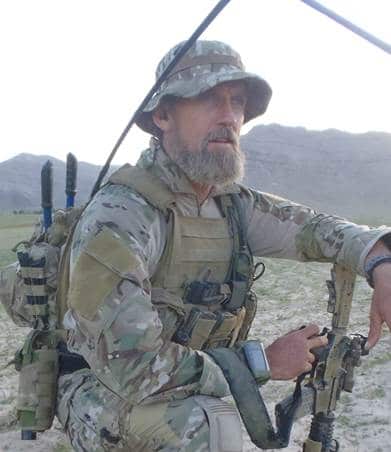
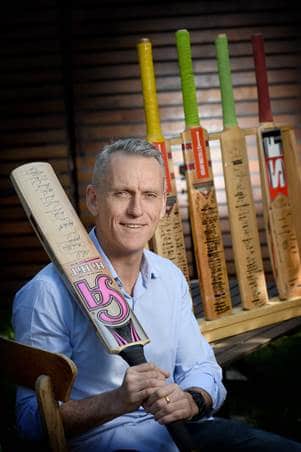
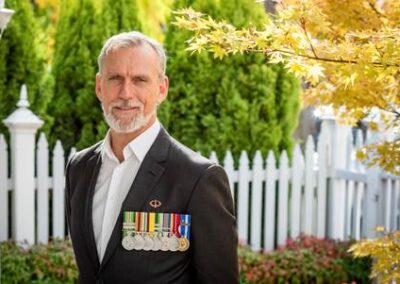




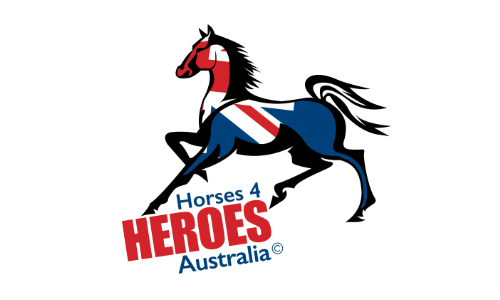
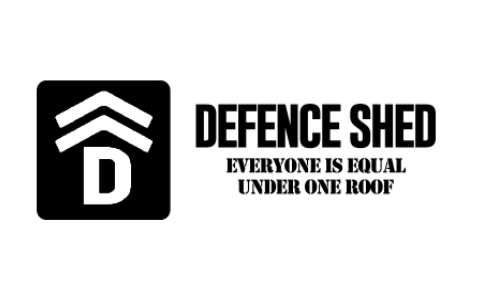
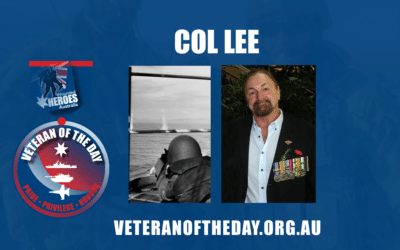
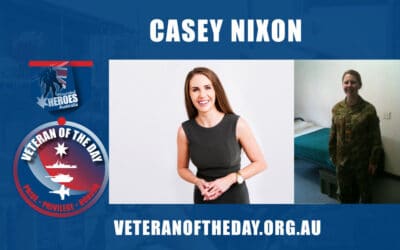
0 Comments